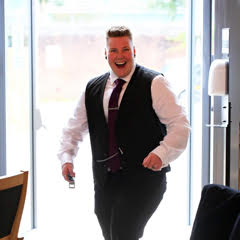Rachel describes herself as a gay autistic advocate from the UK with a background in literature and linguistics, she is currently studying for my Masters in Autism studies and has been accepted to do a Ph.D. in intellectual and developmental disabilities. Her main academic focus is autistic language systems however wider interests include social care reform, promoting autistic research by autistic researchers, and interdisciplinary research involving autistic people at all levels. She offers consultancy to professionals, families, and others who are involved in supporting autistic people on a range of topics from mental health, social inclusion, community, and sensory needs to support services and educational support.
Recommended books
- Neurotribes (Steve Silberman) - narrates a deeply thorough timeline of autistic history, more specifically how autistic people have been treated and how this has evolved since their discovery. It details various events such as Lovaas, institutionalism, the vaccine controversy, ASAN, diagnosis revisions, personal stories of the man behind rain man, and many more.
- Trauma, Stigma, and Autism (Gordon Gates) - this book is about the stigma and trauma autistic people face regularly and over the course of their lifetimes focused more around low-support needs autistic people but also highly relevant for the invalidation faced by people in the spectrum regardless of support needs or co-morbid conditions.
- A Mismatch of Salience (Damian Milton) explores the concept of the ‘double empathy problem’ in a collection of short essays, the basic concept being that autistic people have their own way of communicating and empathizing just like non-autistic people but they are different from one another. He argues the communication and social difficulties placed on autistic people are actually a result of a ‘mismatch of salience’ and that work/effort is required from both autistic and non-autistic people if communication is to be successful ie communication does not break down between autistic and non-autistic parties. The general consensus is that empathy/ communication is a two-way street and currently autistic people are expected to make all the effort to change when it is actually a joint endeavor.
- Ido in Autismland: Climbing Out of Autism's Silent Prison (Ido Kedar) is written by a non-speaking autistic man who went through ABA therapy as a child and documents his experience. It is beautifully written and at times soul-destroying as you go on a journey through his life from his childhood when he was unable to communicate in ways mutually understood by others right through to his adult life where he now advocates for others like himself. Ido has a public Facebook page and is now a strong advocate of the autistic community.
